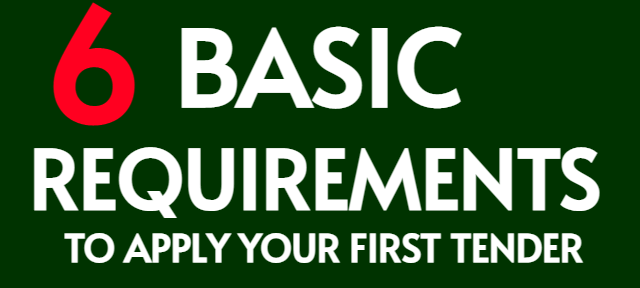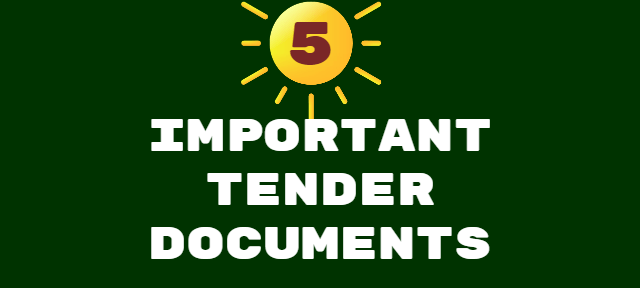Winning your first government tender starts with meeting a few non-negotiable requirements — and knowing where and how to submit your bid. Below is a practical, step-by-step checklist plus tips to make your first application clean, competitive and eGP-ready.
1. Business Registration
Make sure your company is legally registered. Typical documents procuring entities expect:
-
Certificate of Incorporation / Business Registration Certificate
-
CR12 (company particulars) or CR13 where applicable
-
Valid business permits or sector licenses (NCA, NEMA etc.)
- Valid KRA PIN and a valid Tax Compliance Certificate (TCC)
Tip: Match the company name and registration details exactly as they appear on your CR12.
2. Demonstrate relevant experience
Even for first-time bidders, show related work:
-
Past performance letters, LPOs, or reference contacts
-
Photos, completion certificates or short case studies
If you lack direct experience, partner or subcontract with an experienced supplier and include a JV or letter of intent.
3. Prove financial capacity
Procurement teams need assurance you can deliver:
-
Bank statements (3–12 months) or audited accounts
-
Bid bond / performance bond if requested
-
Letter of credit or bank references for larger contracts
Note: Winning a tender doesn’t always mean you must self-finance — many banks offer LPO and invoice financing once you have the contract award.
4. Show technical capacity
Provide CVs, certifications, equipment lists, and method statements that prove you can deliver on scope, timelines and quality. For technical bids (construction, ICT, solar, etc.) include any relevant professional certificates (NCA, IEC, etc.).
5. Comply fully with tender instructions
Read the tender document end-to-end:
-
Follow formatting, binding, and submission rules exactly.
-
Include the requested number of copies and sign where required.
-
Upload/submit via the official channel — eGP / IFMIS / county portal — if the tender is electronic.
Pro tip: The eGP portal (Electronic Government Procurement) is increasingly the official channel for public tenders in Kenya. Register on the eGP/eCitizen supplier portal, upload your documents there and use it to submit online bids when the tender specifies e-submission.
6. Submit early and keep evidence
Don’t wait until the deadline. eGP and other eProcurement systems get slow just before close. Submit early and download any submission receipts or confirmation emails — keep them safe.
Quick checklist (copy this into your filing system)
-
Business Registration (Certificate + CR12/CR13)
-
KRA PIN & Tax Compliance Certificate (TCC)
-
AGPO registration (if eligible)
-
Bank statements / audited accounts
-
Bid security (if required)
-
Technical CVs / certificates / equipment lists
-
Signed & stamped tender forms
-
eGP supplier account (if electronic submission)
-
Proof of submission / confirmation
Need help preparing your first eGP submission?
Create Free AccountFinal tips to increase success rate
-
Be 100% compliant — non-compliance is the top reason for disqualification.
-
Pass functionality — show capacity, methodology, and resource availability.
-
Price smartly — competitive but sustainable pricing wins.
-
Follow up professionally — request feedback if you lose; it helps you improve next time.



